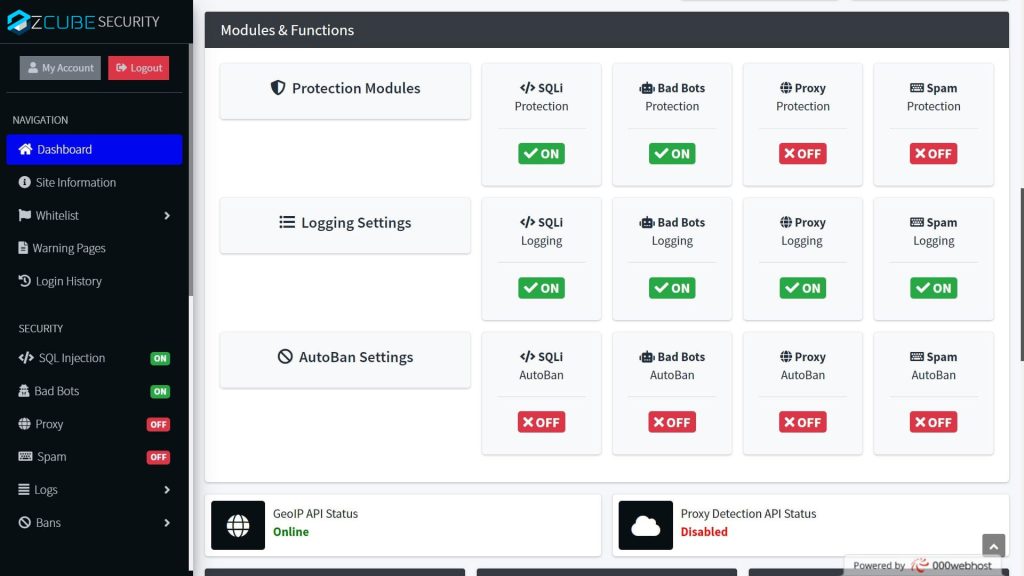Web security solutions encompass a range of technologies, practices, and strategies designed to protect websites and web applications from various threats, including hacking attempts, data breaches, malware infections, and other cyber attacks.
Here are some common web security solutions zCube offers:
Secure Sockets Layer/Transport Layer Security (SSL/TLS): SSL and its successor, TLS, are cryptographic protocols that establish an encrypted connection between a web server and a client’s web browser. SSL/TLS certificates provide authentication and ensure data confidentiality during transmission, protecting sensitive information from eavesdropping and tampering.
Web Application Firewalls (WAF): WAFs are security measures that analyze and filter incoming web traffic to identify and block malicious requests. They protect against common web application vulnerabilities, such as SQL injections, cross-site scripting (XSS), and cross-site request forgery (CSRF).
Content Security Policy (CSP): CSP is a security standard that allows website owners to define and enforce policies regarding the content loaded on their web pages. It helps prevent and mitigate the impact of code injection attacks, such as XSS, by specifying trusted sources for scripts, stylesheets, and other resources.
Two-Factor Authentication (2FA): 2FA adds an extra layer of security by requiring users to provide a second form of authentication, typically a temporary code generated on their mobile device, in addition to their username and password. This mitigates the risk of stolen or weak credentials.
Regular Software Updates and Patching: Keeping web applications and server software up to date with the latest security patches is crucial for minimizing vulnerabilities. Regular updates address known security flaws and vulnerabilities, reducing the risk of exploitation.
Secure Coding Practices: Employing secure coding practices, such as input validation, output encoding, and secure session management, is essential for building resilient and secure web applications. Following secure coding guidelines and frameworks, such as the Open Web Application Security Project (OWASP) Top Ten, helps developers avoid common security pitfalls.
Vulnerability Scanning and Penetration Testing: Regularly scanning web applications and networks for vulnerabilities can help identify weaknesses before they are exploited. Penetration testing involves simulated attacks on a system to identify vulnerabilities and assess the effectiveness of existing security controls.
Intrusion Detection and Prevention Systems (IDPS): IDPS tools monitor network and system activities for suspicious behavior or known attack patterns. They can automatically block or alert administrators about potential threats, helping prevent unauthorized access and data breaches.
Security Information and Event Management (SIEM): SIEM systems collect and analyze logs and event data from various sources to provide real-time monitoring, threat detection, and incident response. They help centralize and correlate security events to identify potential security breaches.
Employee Training and Awareness: Educating employees about web security best practices, such as identifying phishing emails, using strong passwords, and being cautious when accessing unknown websites or downloading files, is essential for maintaining a secure web environment.
zCube Anti-Bot Solution Protects Your Online Business From Bot Attacks
Our websites security solutions allows you to quickly and easily set up web page protection, while keeping an eye on its current server configuration.
 Our solution is a powerful website security app that will protect your website from hackers, attacks and other threats. It will protect your website from SQLi Attacks (SQL Injections), XSS Vulnerabilities, Proxy Visitors, VPN Visitors, TOR Visitors, Spam and many other types of threats.
Our solution is a powerful website security app that will protect your website from hackers, attacks and other threats. It will protect your website from SQLi Attacks (SQL Injections), XSS Vulnerabilities, Proxy Visitors, VPN Visitors, TOR Visitors, Spam and many other types of threats.Our security app uses an intelligent algorithms (similar to the ones used by major industry companies) to detect all known hacker attacks as well as new unknown threats using code recognition and patterns, and automatically takes action.
It comes with powerful admin panel from which you can view all logs and it is also integrated with Ban System from which can be banned Visitors (IP Addresses), Countries, IP Ranges, Internet Service Providers (ISP), Browsers, Operating Systems (OS) and Referrers. The Admin Panel has many features and settings. Through it can be easily managed the security of your website.
Our security app is a powerful Web Application Firewall designed to protect all PHP softwares, from custom scripts to popular shopping cart softwares and CMS applications. It allows any website administrator to benefit from very advanced and powerful security features. It is very fast, optimised and requires very low system resource.
